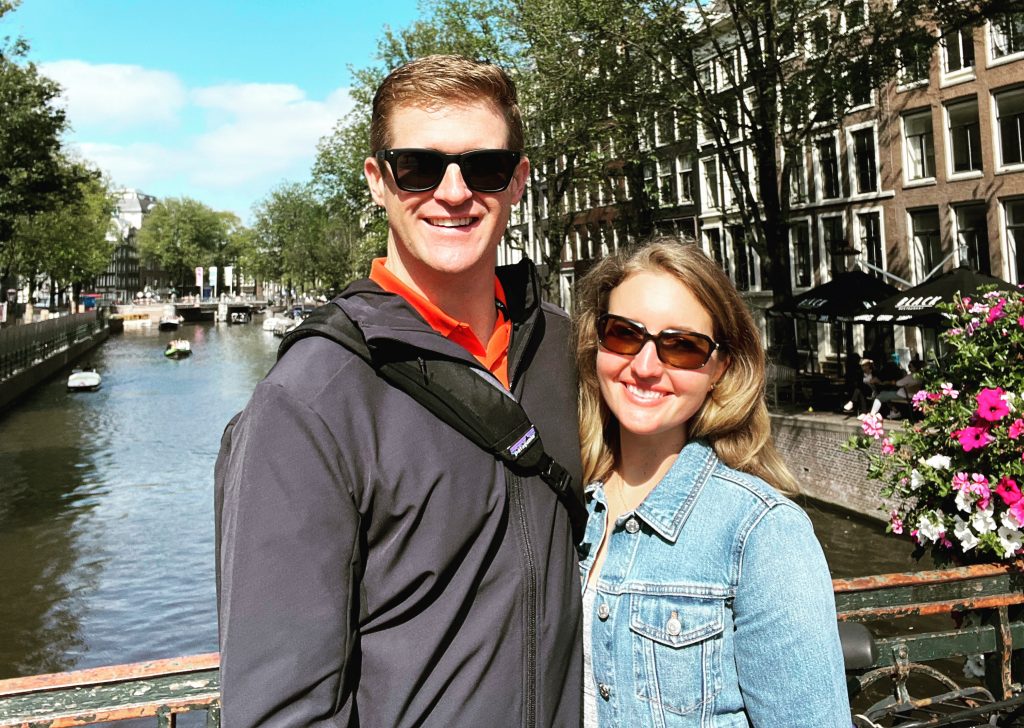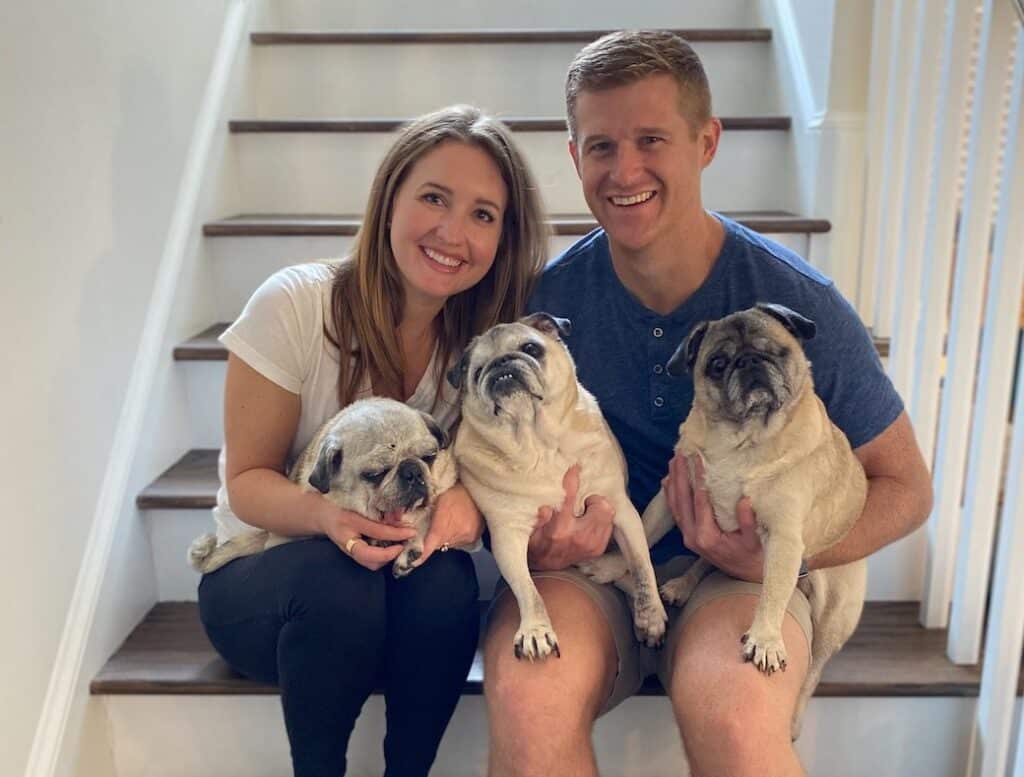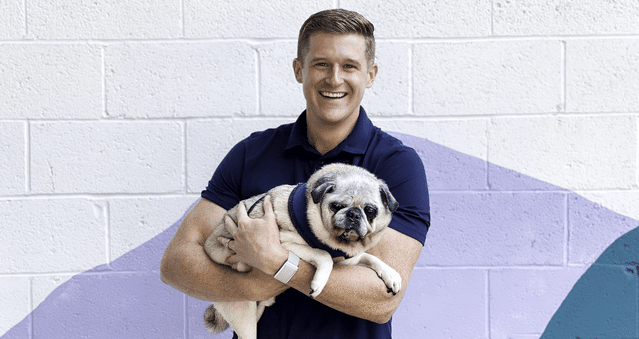Get to know the people behind Sonar with our employee spotlight series. Next up is Brad Smith, Co-founder & CEO.
You likely know of Brad Smith. Not only is he the CEO and Co-founder of Sonar, he’s also a Co-founder of the ops Slack community, Wizards of Ops. We recently chatted with Brad about what led him to create Sonar, why he’s so passionate about solving problems for the ops community, who he admires in RevOps, and more. Read on to get to know Brad on a whole new level.
 Brad, let’s start with your career path. What did it look like?
Brad, let’s start with your career path. What did it look like?
My career started in sales. But after nine months, I decided to change courses, moving into ops as a technical analyst at an insurance company. From there, I was curious to work at a large enterprise and took a role at Cox Communications as a program manager.
But I really wanted to work at a startup. I finally got my chance, landing my next job as an ops manager at Cloud Sherpas. I started in professional services operations. Until one day, I began working in a new department called “RevOps.”
Being in RevOps got me interested in Salesforce, and I ended up becoming a Salesforce Admin. My love for Salesforce continued growing so much that I decided to pursue a path as an SFDC consultant.
I learned a lot as a consultant, but eventually, I realized I enjoy internal ops way more. So, I boomeranged back to the ops world, becoming the RevOps Manager at the Atlanta startup Gather. I eventually moved to another startup, Terminus, where I ran their RevOps department. That’s when I met my co-founder Jack, and the rest is history.
What made you know that starting Sonar was worth the risk?
By nature, I’m pretty risk-averse. But I knew that starting Sonar, even in the middle of a pandemic, was worth the risk because the problem we are solving is so evidently clear. And we have the passion for solving it. When we looked at the risk versus reward comparison, we knew the reward was more than worth it.
Can you tell me more about the problem we’re solving and why you’re so passionate about it?
When I was working in ops, I experienced firsthand the huge issues caused by a lack of visibility into your go-to-market tech stack and how every piece talks to each other. As a problem solver, I was driven to figure out how to solve this issue for others.
What keeps that passion going is that we get to help people who are walking that mile and experiencing those issues. I love that I get to make their jobs easier every single day.
Who do you admire in RevOps and why?
There are so many people that come to mind, but I have to give a shoutout to Keith Jones, GTM Systems Lead at MURAL. I met Keith early on in his ops career, and I’ve been so impressed with how fast he’s grown and how he carries himself. One of the things he’s really good at is articulating why a problem is important to solve and the steps it will take to get to a solution.
Often, the c-suite doesn’t understand how negative downstream impacts caused by changes impact their role. Can you tell us how those negative impacts affect them?
More and more executives are realizing the value of data integrity, which is dependent on ops to manage change correctly and provide accurate reports.
A good example of an ops leader who has gone the extra mile to ensure data integrity with his leadership team is Mark Lail, Manager of RevOps at FullStory. Mark understands that while it’s important to build things tactically, it’s even more critical to build them in a way that solves business problems. Mark knows that if you’re unable to articulate why you built a report the way you did or have a reason behind why you’re analyzing something in a particular way, leadership is inherently going to lose trust in your ability to solve problems. I respect how Mark builds trust with leadership and provides them with the best data possible.
How do you spend your time when you’re not at work?
I spend my time hanging out with my wife and our three geriatric pugs. We love volunteering for a pug rescue in Atlanta. We also like to escape the city, going to the lake to disconnect from the world for a little bit.
 What are you most passionate about in life?
What are you most passionate about in life?
Health and fitness are a big part of my life. I was on the cycling team, became the president of a triathlon club, and achieved an Ironman in college.
These days, I’m a big Peloton nerd. Like many ops folks, I love all of the data points you get during a Peloton class. That motivates me to do my best every ride.
What drives your work ethic?
One of the reasons I got into tech was my mom. She was a computer teacher back in the day. Sadly, I lost her when I was 19. Around that time, I decided to go into the IT and tech startup space to fulfill her legacy and make her proud.
What are some of the main lessons you’ve learned in your career?
- Ask for help. Sometimes the hardest thing to say is “I don’t know.” But it’s important to become good at saying it. If you’re humble enough to admit you don’t know everything, that shows you’re ready to learn and grow.
- Surround yourself with people who are smarter than you. We try to do that at Sonar, and I think it’s what makes our company great.
Who is someone that you admire at Sonar and why?
I admire our Product Manager, Mitchell Blanchard. Mitchell always comes to work ready to solve a problem, no matter what role he’s in. His path at Sonar has accelerated quickly, moving from internal operations to sales engineering and landing in his current role as a product manager. Mitchell does whatever’s best for our company, and he never lets his ego get in the way. I think the world of him.
What podcasts are you listening to right now?
I’m a big fan of Sean Lane’s podcast, Operations. I also like listening to David Sacks’ podcast, Sacks on SaaS, hosted on his podcasting app, Callin. And my all-time favorite podcast is How I Built This, hosted by Guy Raz.
Where’s your favorite place to hang out in Atlanta?
I love grabbing a beer at my neighborhood brewery, Sceptre.

